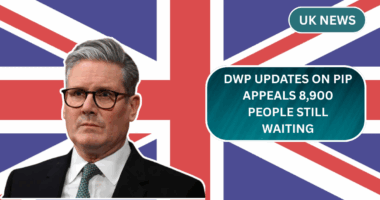The UK government is continuing its major changes to the welfare system, with the Department for Work and Pensions (DWP) confirming that six key benefits will be completely phased out by 2026. These benefits are being replaced by Universal Credit, a single monthly payment meant to simplify the system. But for millions of people across the country, these changes mean they could lose their existing support if they don’t take action soon.
Which Benefits Are Ending?
The six legacy benefits that will be removed include:
- Income-based Jobseeker’s Allowance (JSA)
- Income-related Employment and Support Allowance (ESA)
- Income Support
- Working Tax Credit
- Child Tax Credit
- Housing Benefit
These benefits are being replaced by Universal Credit, which combines all these separate payments into one. While new applicants are already being directed to Universal Credit, existing claimants are now being asked to move over.
Why Is This Happening?
According to the DWP, the goal is to create a simpler, more modern benefits system that avoids duplication and confusion. Instead of managing multiple claims, households will get a single monthly payment through Universal Credit.
The DWP started this transition a few years ago. Now, they are accelerating the process. From 2024 onwards, the department is sending out what’s called a “Migration Notice” to people still on legacy benefits. This notice gives claimants three months to switch to Universal Credit.
If they don’t apply in that time, their current benefits will stop.
How Many People Will Be Affected?
Government data shows that more than 2 million people are still on the six legacy benefits. The DWP aims to shift all of them to Universal Credit by March 2026.
Here’s a rough breakdown:
- Over 1.2 million claimants are on Employment and Support Allowance (ESA)
- Around 630,000 are on Tax Credits
- The rest are on Income Support, JSA, or Housing Benefit
The switchover is being done in phases. Right now, the focus is on those receiving Tax Credits. Later this year and into 2025, the attention will shift to those on ESA and other benefits.
What Should You Do If You’re Affected?
If you receive one of the six benefits mentioned above and get a letter from the DWP (a Migration Notice), it’s important to act quickly.
Here’s what you should do:
- Read the letter carefully. It will explain the deadline and how to claim Universal Credit.
- Apply within three months. If you miss the deadline, your current payments could stop.
- Use support services. Free help is available from Citizens Advice and other local organizations.
The DWP says most people will not lose money in the long run. In fact, they claim some may get more under Universal Credit. But there’s a “transitional protection” available for those who would lose out. This means they’ll get top-up payments to prevent sudden income drops, though this amount may reduce over time.
Concerns and Criticism
Charities and campaigners have raised concerns that the transition is too fast and that vulnerable people could fall through the cracks. Many claimants may not understand the letters or may struggle with the digital application process.
A recent report by the Public Accounts Committee said the DWP must do more to protect low-income families and ensure they don’t lose vital support during the switchover.
Final Takeaway
This is one of the biggest welfare changes in the UK in recent years. With six major benefits being cut and replaced by Universal Credit, millions of people will need to act. If you’re currently receiving any of these payments, watch your mailbox and respond to any letters from the DWP as soon as possible.
Grant Wilkinson is a content editor at The Landscape Insight, where he helps to produce engaging and informative articles about the industry. With a keen eye for detail and a passion for quality, Grant works closely with a team of writers and designers to bring the latest news and insights to readers. You can reach Grant at – [email protected] or on Our website Contact Us Page.








